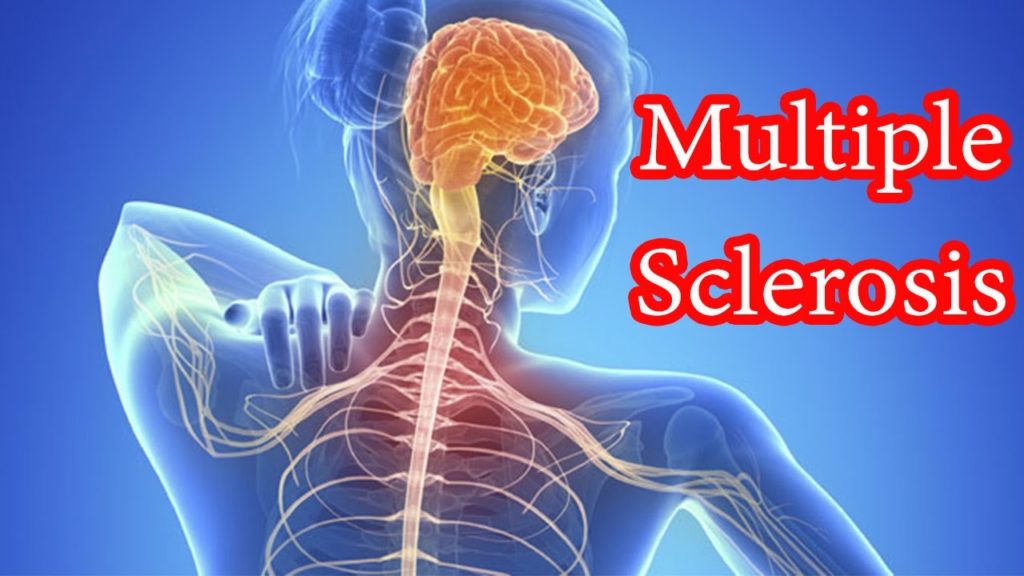
10 Facts about Multiple Sclerosis
There’s currently no cure for multiple sclerosis (MS), but it’s possible to treat the symptoms with medications and other treatments.
Treatment for MS depends on the specific symptoms and difficulties the person has. It may include:
treating relapses of MS symptoms (with steroid medication)
treating specific MS symptoms
treatment to reduce the number of relapses (disease-modifying therapies)
You’ll be supported by a team of different healthcare professionals working together. This may include a neurologist (specialist in treating conditions of the nervous system), a physiotherapist, a speech and language therapist, and a number of other professionals.
Your team will also include a specialist MS nurse, who will usually serve as your main point of contact.
Further information
Department of Health: National Service Framework for long-term conditions (PDF, 127Mb)
NICE: multiple sclerosis in adults
Treatment for MS relapses
Contact your specialist MS nurse or GP if you think you’re having a relapse.
A flare-up of symptoms can sometimes be caused by something other than a relapse, such as an infection, so your nurse or GP needs to check for other possible causes.
Treatment for a relapse usually involves either:
-
a five-day course of steroid tablets taken at home
injections of steroid medication given in hospital for three to five days
Steroids can help speed up your recovery from a relapse, but they don’t prevent further relapses or stop MS getting worse over time.
They are only given for a short period of time to avoid possible steroid side effects, such as osteoporosis (weak bones), weight gain and diabetes, although some people will still experience problems.
Not using steroids more than three times a year (if possible) will also help to reduce the risk of side effects.
Further information
MS Trust: steroids
MS Society: treatments
Treatment for specific MS symptoms
MS can cause a range of symptoms that can be treated individually. Treatments for some of the main symptoms are discussed in the following sections.
Fatigue
Many people with MS experience fatigue.
For fatigue caused by MS, you may be prescribed amantadine, although this medication may only have a limited effect. You should also be given general advice on ways to manage fatigue, such as exercise, keeping healthy sleep patterns, energy-saving techniques and avoiding medications that can worsen fatigue (including some painkillers).
Specialist fatigue management courses or therapy, such as cognitive behavioural therapy (CBT), can also help some people with MS cope with their fatigue.
Visual problems
MS-related visual problems will often improve on their own, usually within a few weeks, so you may not need any treatment. If your symptoms are particularly severe, you may be prescribed steroids to help speed up recovery.
If you have problems with involuntary eye movements, medication such as gabapentin can sometimes help. Some people with double vision need help from ophthalmologists (eye specialists).
Muscle spasms and stiffness
Muscle spasms and stiffness (spasticity) can be improved with physiotherapy. Techniques such as stretching exercises can help if your movement is restricted.
If your muscle spasms are more severe, you may be prescribed a medicine that can relax your muscles. This will usually be either baclofen or gabapentin, although there are alternative medicines, such as tizanidine, diazepam, clonazepam and dantrolene.
These medicines all have side effects, such as dizziness, weakness, nausea and diarrhoea, so discuss which of these would be best for you with your specialist MS nurse or GP.
Mobility problems
Mobility problems are often the result of muscle spasms and spasticity (see above), but they can also be caused by muscle weakness, or problems with balance or dizziness.
If you have problems with mobility, you might benefit from:
an exercise programme supervised by a physiotherapist
special exercises called vestibular rehabilitation, if you have problems with balance
medication for dizziness or tremors
mobility aids, such as a walking stick, or occasionally a wheelchair
home adaptations such as stair lifts or railings
An occupational therapist can carry out an assessment of your home and suggest adaptations that may be of help.
Neuropathic pain
Neuropathic pain is caused by damage to your nerves and is usually sharp and stabbing. It can also occur in the form of extreme skin sensitivity, or a burning sensation.
This type of pain can be treated using the medicines gabapentin or carbamazepine, or with a medication called amitriptyline. This is an older type of antidepressant, but these days it’s mainly used for pain control.
Musculoskeletal pain
Living with MS can cause stresses and strains to the muscles and joints in your body.
A physiotherapist may be able to help with this pain by suggesting exercise techniques or better seating positions.
If your pain is more severe, you may be prescribed painkillers. Alternatively, you may have a device that stimulates your nerves, called as a transcutaneous electrical nerve stimulation (TENS) machine.
Problems with thinking, learning and memory
If you experience problems with thinking and memory, any treatment you receive will be fully explained and recorded, so that it’s clear to you.
You should be referred to a clinical psychologist, who will assess your problems and suggest ways to manage them.
Emotional problems
If you experience emotional outbursts, such as laughing or crying for no apparent reason, you should be assessed by a specialist such as a clinical psychologist. They may suggest treatment with an antidepressant.
People with MS who have depression can also be treated with antidepressants or therapy, such as CBT.
If you often feel anxious or worried, you may be prescribed antidepressants or benzodiazepines, which are a type of tranquilliser that have a calming effect.
Sexual problems
Men with MS who find it hard to obtain or maintain an erection (erectile dysfunction) may be prescribed medication to temporarily increase the blood flow to the penis, such as sildenafil (Viagra). This is provided by the NHS if you have MS.
Relationship counselling or seeing a sex therapist may also help both men and women with MS who are having problems with reduced interest in sex or difficulty reaching orgasm.
Bladder problems
Various medications are available if you have an overactive bladder or need to pee frequently during the night.
If you find it difficult to empty your bladder, advice from a continence nurse or physiotherapist can help. Handheld external stimulators can also help some people to start peeing or to empty the bladder.
Occasionally, a catheter can be used to empty the bladder when needed. In rare cases, people with MS may need a long-term catheter to keep the bladder emptying safely.
You may be referred to a continence adviser or urologist, who can offer specialist treatment and advice, such as botulinim toxin injections, bladder exercises or electrical treatment for your bladder muscles. Read more about treating urinary incontinence.
Bowel problems
It may be possible to treat mild to moderate constipation by changing your diet or taking laxatives.
More severe constipation may need to be treated with suppositories, which are inserted into your bottom, or an enema. An enema involves having a liquid medication rinsed through your bottom and large bowel, which softens and flushes out your stools.
Bowel incontinence can sometimes be treated with anti-diarrhoea medication or by doing pelvic floor exercises to strengthen your rectal muscles.
Speech and swallowing difficulties
A speech and language therapist can help you find ways to overcome problems with speech and swallowing.
For example, they can offer advice about foods that are easy to swallow and they can recommend exercises to strengthen the muscles used in speech and swallowing.
If swallowing problems become very severe, some people need to be fed using a tube, which is fitted into the stomach through the skin.
Further information
MS Trust: treating MS symptoms
MS Society: signs and symptoms
Disease-modifying therapies
Although MS can’t currently be cured, there are medicines that can help to reduce the number and severity of relapses in some people. These are called “disease-modifying therapies”.
These aim to reduce the amount of damage and scarring to the myelin sheath (layer surrounding your nerves), associated with MS relapses.
These treatments may also help to slow worsening disability in MS, although definitive research into their long-term benefits is limited.
Disease-modifying therapies are not suitable for everyone with MS. They’re only prescribed to those with relapsing remitting MS or secondary progressive MS who meet certain criteria, such as the number of relapses they’ve had.
People without relapses are very unlikely to benefit from the treatments and could still experience side effects from them.
Further information
MS Society: disease-modifying therapies
MS Trust: disease-modifying drugs
MS Decisions
Beta interferon
The types of beta interferon licensed for use in the UK are interferon beta-1a (Avonex, Rebif and Plegridy) and interferon beta-1b (Betaferon and Extavia). These are all given by injection.
You may be offered treatment with one of these medicines if either:
you’ve got relapsing remitting MS and you’ve had a recent relapse and/or MRI scans show that your MS is active
you have secondary progressive MS and still have significant relapses
All beta interferons often cause mild side effects, particularly flu-like symptoms (headaches, chills and mild fever), for 24-48 hours after they’re injected, and temporary pain or redness at the injection site.
Glatiramer acetate
One brand of glatiramer acetate, called Copaxone, is licensed for use in the UK. It’s injected under the skin either every day or at a higher dose three times a week.
You may be offered treatment with glatiramer acetate if you’ve got relapsing remitting MS and you’ve had a recent relapse, and/or MRI scans show that your MS is active.
Common side effects of glatiramer acetate include problems with redness or hardening of the skin at the injection sites, and occasionally palpitations or flushing after the injection.
Teriflunomide
Teriflunomide, branded as Aubagio, is a tablet taken once a day.
You may be offered treatment with teriflunomide if you have relapsing remitting MS and you’ve had a recent relapse, and/or MRI scans show that your MS is active.
Common side effects of teriflunomide include headaches, feeling sick, diarrhoea and hair thinning or hair loss. You’ll also need blood tests frequently in the early months of treatment to check for problems with liver function.
Natalizumab
Natalizumab, branded as Tysabri, is injected into a vein (known as an infusion) once every 28 days.
You may be offered treatment with natalizumab if you have severe relapsing remitting MS that’s getting worse quite quickly – for example, if you’ve had two or more severe relapses within a year and MRI scans show that your MS is getting worse.
Side effects of natalizumab are rare, but can include an increased risk of an itch or rash (hives), headaches, dizziness, joint pain, and feeling or being sick at the time of the infusions.
The main concern of treatment with natalizumab is a risk of a brain infection called progressive multifocal leukoencephalopathy (PML). This is uncommon, but can become a significant problem with long-term treatment in some people.
Fingolimod
Fingolimod, branded as Gilenya, is taken as a capsule once a day.
You may be offered treatment with fingolimod if you have relapsing remitting MS and you experience the same or an increased number of relapses, despite treatment with other medications such as beta interferons.
The medication doesn’t usually cause significant side effects, but some people experience an increased risk of infections, headaches, diarrhoea, liver problems and visual problems.
Alemtuzumab
Alemtuzumab, branded as Lemtrada, is initially given into a vein once a day for five consecutive days. This is followed by a second course of treatment a year later, which lasts for three consecutive days.
You may be offered treatment with alemtuzumab if you’ve got relapsing remitting MS and you’ve had a relapse in the past year, and/or MRI scans show that your MS is active.
Common side effects of alemtuzumab include an increased risk of infections, headaches, rashes and fever. Regular blood and urine tests will be carried out to monitor treatment.
Dimethyl fumarate
Dimethyl fumarate, branded as Tecfidera, is a tablet taken twice a day.
You may be offered treatment with dimethyl fumarate if you’ve got relapsing remitting MS and you’ve had a recent relapse and/or MRI scans show that your MS is active.
Common side effects of dimethyl fumarate include hot flushes, diarrhoea, nausea, abdominal (tummy) pain and headaches. Stomach upsets usually settle after a month or so. The flushes can continue, but aren’t normally a major issue.
Cladribine
Cladribine, branded as Mavenclad, is a tablet taken as a course of treatment over two years. You take a tablet once a day for four or five days in the first month that you start treatment and then again a month later for another four or five days. This cycle is then repeated a year later.
You may be offered treatment with cladribine if you have very active relapsing remitting MS. This means you have severe MS that’s getting worse quite quickly – for example you’ve had at least two relapses in the past year and MRI scans show that your MS is getting worse.
You may also be offered cladribine if you’ve had a relapse in the past year and MRI scans show that your MS is active even if you’ve been taking a different disease-modifying therapy.
Common side effects of cladribine include a reduced white blood cell count, cold sores and shingles, rash and hair loss. Regular blood tests will be carried out to monitor treatment.
Further information
NICE: beta interferon and glatiramer acetate for the treatment of multiple sclerosis
NICE: teriflunomide for relapsing-remitting multiple sclerosis
NICE: natalizumab for the treatment of adults with highly active relapsing-remitting multiple sclerosis
NICE: fingolimod for the treatment of highly active relapsing-remitting multiple sclerosis
NICE: alemtuzumab for treating relapsing-remitting multiple sclerosis
NICE: dimethyl fumarate for treating relapsing-remitting multiple sclerosis
NICE: cladribine tablets for treating relapsing-remitting multiple sclerosis
Clinical trials
Much progress has been made in MS treatment thanks to clinical trials, where new treatments and treatment combinations are compared with standard ones.
All clinical trials in the UK are carefully overseen to ensure they are worthwhile and safely conducted. Participants in clinical trials sometimes do better overall than those in routine care.
Speak to your care team if you’re interested in taking part in a clinical trial.
Further information
Clinical trials for multiple sclerosis
Clinical trials and medical research
MS Society: get involved in research
Complementary and alternative therapies for MS
Some people with MS find that complementary therapies help them feel better. Many complementary treatments and therapies claim to ease symptoms, although scientific evidence is often not clear about how effective they are.
Many people think that complementary treatments have no harmful effects. However, people can occasionally experience problems, and it’s not a good idea to use them as an alternative to medicines prescribed by your doctor. If you’re considering using an alternative treatment alongside your prescribed medicines, it’s important to let your doctor know your plans.
Further information
MS Society: complementary and alternative medicines
MS Trust: complementary and alternative medicine




